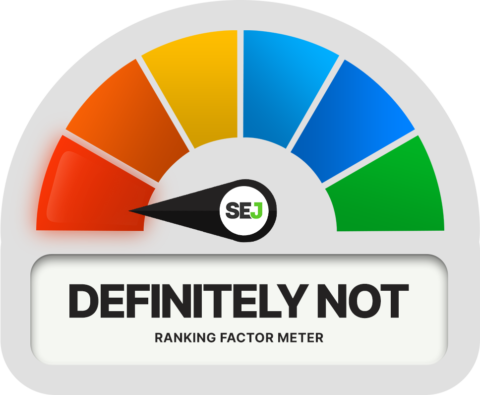Quickly gaining a lot of links from other sites sounds like it should be a positive thing for any website.
But could it actually hurt, rather than help, your rankings?
Or does link velocity not matter at all to Google? Is it, in fact, just some made-up SEO term?
Read on as we investigate the origins of link velocity and whether it’s something you need to be genuinely concerned about in SEO.
The Claim: Link Velocity As A Ranking Factor
Link velocity refers to a theory that the speed at which a website gains links has the potential to impact rankings, either positively or negatively.
Link Velocity = Good
Years ago, having a high link velocity in a short period of time was viewed by some as a good thing in the SEO industry, one that could positively influence your Google rankings.
Link velocity was mentioned in articles and during conference sessions – because in those days link building was more about quantity than quality.
Want to get a webpage to rank quickly? Build a whole bunch of links to it fast.
But the idea of quantity over quality changed after Google launched the Penguin algorithm.
Link Velocity = Bad
The belief here is that gaining links too fast can cause a website to get penalized or demoted in search results.
It is based on the idea that Google will interpret a quick increase in inbound links as a sign that the website is trying to manipulate its search rankings.
Understandably, the idea of link velocity can be concerning for everyone who is averse to getting inadvertently penalized for acquiring links.
The growth of a website’s link profile is largely out of its control.
If a site publishes a great piece of content, for example, many other sites may reference it within a short time frame, resulting in a number of links gained all at once.
Were link velocity to work as SEO experts claim, the website in the above example could receive a penalty because it gained an influx of inbound links through no fault of its own.
The Evidence: Link Velocity As A Ranking Factor
The origins of link velocity in the SEO community can be dated back to the discovery of a Google patent that was filed in 2003.
The patent, Information Retrieval Based on Historical Data, includes ideas about how a search engine should treat a website based on the growth of its link profile.
In particular, the idea of link velocity can be traced back to this passage:
“While a spiky rate of growth in the number of backlinks may be a factor used by search engine 125 to score documents, it may also signal an attempt to spam search engine 125. Accordingly, in this situation, search engine 125 may actually lower the score of a document(s) to reduce the effect of spamming.”
Search Engine Journal’s Roger Montti has picked apart SEO experts’ interpretation of this patent, noting how they ignore parts of the patent which disprove their own theory.
For instance, the patent goes on to define what a “spiky rate of growth” is and how it can be the defining characteristic of unnatural link building.
The patent isn’t about penalizing websites that see a rapid increase in inbound links.
It’s about demoting websites that exhibit a pattern of unusual spikes in inbound links over extended periods.
According to Montti:
“What that patent is really talking about is the smooth natural rate of growth versus a spiky and unnatural rate of growth.
A spiky rate of growth can manifest over the course of months. That’s a big difference from the link velocity idea that proposes that a large amount of links acquired in a short period will result in a penalty.”
The evidence doesn’t add up to what experts claim about link velocity.
Link Velocity As A Ranking Factor: Our Verdict

There is no evidence to suggest that Google uses a signal known as link velocity that can negatively impact rankings.
Link velocity is not a term Google officially recognizes.
When asked about it, Google search representatives say a website’s links are assessed on their own merits, not by how many are gained in which length of time.
Here’s an example of such a response from Google’s John Mueller:
“It’s not so much a matter of how many links you get in which time period. It’s really just… if these are links that are unnatural or from our point of view problematic then they would be problematic. It’s like it doesn’t really matter how many or in which time.”
Google’s Gary Illyes put it more bluntly in a Reddit AMA, calling link velocity a made-up term.
Whether links are gained fast or slow, what really matters is the quality of the individual links and the manner in which they were acquired (naturally or unnaturally).
Featured Image: Paolo Bobita/Search Engine Journal


